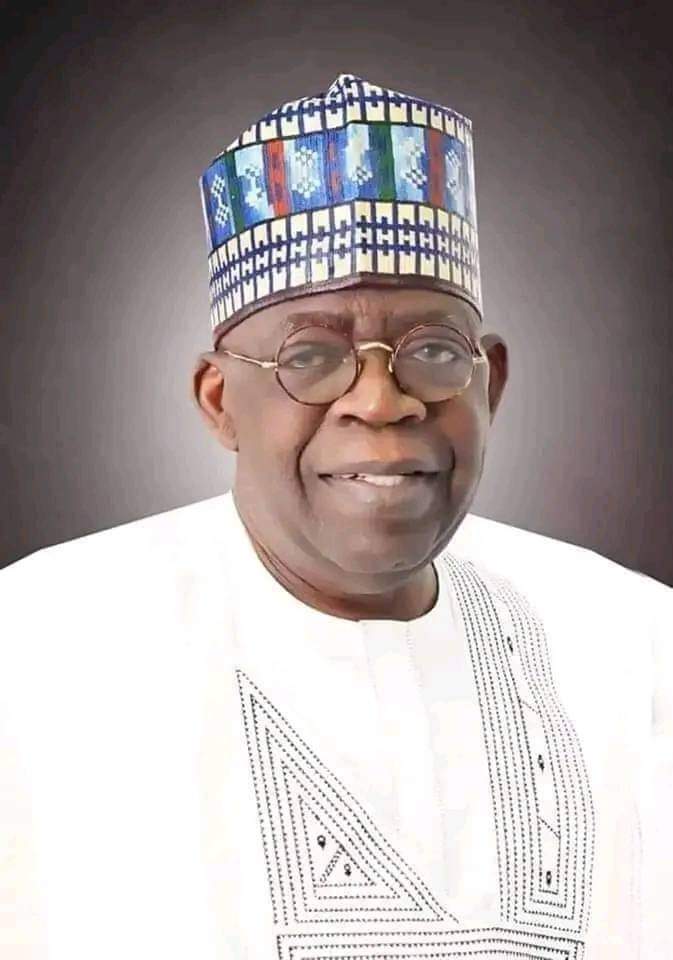How N70.4trn Domestic Debt Turned President Tinubu’s Renewed Hope Agenda to Borrowed Hope
This piece would not have been necessary but because it confirms my earlier observation which I consider salient.
Barely a week after a searing spotlight was cast on the multifaceted obstacles confronting the “Renewed Hope” agenda of President Bola Ahmed Tinubu, in my article titled Factors casting shadows on President Tinubu Renewed Hope Agenda .
Yes, l came up with this piece in the light of the new revelations that Nigeria’s domestic debt has now skyrocketed to an unprecedented N70.4 trillion. Besides the confirmation of the shadows I was afraid of, it has sent further ripples of concern across the country’s socio-political and economic landscape.
The astronomical rise of Nigeria domestic debt – a 10.7% increase within just a quarter, according to data released by the Debt Management Office (DMO) – has sparked nationwide debate on the sustainability of Nigeria’s fiscal policies under the current administration. Analysts, stakeholders, and the Nigerian masses are now questioning how the soaring debt aligns with Tinubu’s promise of national rejuvenation and economic revival.
When President Tinubu unveiled his “Renewed Hope” manifesto in 2023, it was received with cautious optimism. The agenda promised economic growth, job creation, infrastructural renewal, national cohesion, and the eradication of poverty. However, two years into his administration, the country finds itself grappling with deepening inflation, a weakening naira, widespread hunger, soaring energy prices, insecurity, and now, a crippling domestic debt burden.
The domestic debt stock, which includes Federal Government bonds, treasury bills, and FGN savings bonds, now poses an even greater threat to Nigeria’s fragile economy. Experts warn that the high debt servicing costs are already eating deep into national revenue, leaving little room for capital projects or impactful social investment.T
he truth is that the economic realities on ground contradict the Promises of the renewed hope.Dr. Ken Ife, a development economist and senior policy advisor, expressed concern during a recent interview on Arise News:
“The Renewed Hope Agenda is unfortunately being undermined by structural weaknesses and poor policy sequencing. With a domestic debt of N70.4 trillion, we are heading into a fiscal storm unless we re-prioritize our expenditure and grow our revenue base urgently.”
Similarly, the Nigerian Labour Congress (NLC) has questioned how the government plans to fund its promises of social protection, job creation, and wage increases while allocating over 90% of revenue to debt servicing and recurrent expenditure.
The recent removal of fuel subsidies and the floating of the naira, both heralded as tough but necessary economic reforms, have failed to deliver tangible relief to the masses. Instead, they’ve worsened the cost of living and heightened public frustration.
The Price of Borrowing Without Production is a self inflicted injury no one can cure.
Critics argue that Nigeria’s borrowing pattern – largely used to finance consumption rather than production – is unsustainable. While domestic debt might seem safer than foreign debt in terms of currency risks, it still poses significant macroeconomic threats, including crowding out the private sector, distorting interest rates, and exacerbating inflation.
Professor Pat Utomi, political economist and founder of the Centre for Values in Leadership, did not mince words:
“We cannot borrow our way out of poverty. The president’s agenda needs to be matched with a rigorous and productive economic strategy. Right now, all I see is a borrowed hope.”
We need to really look at the
Political Fallout and take an analytical view of Public Sentiments.
Beyond the economic figures lies a growing political problem. The escalating debt is emboldening the opposition, civil society organizations, and youth groups who feel alienated by the current administration’s policies. Many believe that Tinubu’s economic team has failed to provide a coherent rescue plan, with some calling for a reshuffle of key economic portfolios.
Social media, too, is abuzz with reactions, with hashtags like #BorrowedHope and #DebtOverload trending on X (formerly Twitter), reflecting public disillusionment.
A Call for Transparency, Accountability, and Strategy
To salvage what remains of the Renewed Hope agenda, economic commentators are calling for greater transparency in borrowing practices, clear metrics for evaluating the impact of loans, and a laser focus on revenue diversification through non-oil exports, agricultural industrialization, and digital economy investments.
Former CBN Deputy Governor, Kingsley Moghalu, emphasized during a financial forum:
“The time for political sloganeering is over. What Nigeria needs now is economic intelligence and pragmatic reforms that reflect the realities of our debt-ridden economy.”
Conclusion: Hope in Crisis
As Nigeria’s domestic debt rises to N70.4 trillion, the gulf between ambition and reality grows wider. For President Tinubu, this presents a defining moment. Will his administration continue to paper over the cracks, or will it rise to the occasion with bold, actionable reforms that translate hope into tangible progress?
With the nation’s economy teetering on the edge, Nigerians can only wait – and hope – that the promise of “Renewed Hope” does not become a permanently borrowed hope and a shadow of what could have been.
Comrade Wilson Macaulay is a Correspondent of Daily independent Newspaper,
Development Advocate & Public Affairs Commentator.
Facilitator of the Column titled :The Prism of the Ruled.He writes from
Warri, Delta State Nigeria
April 21, 2025










